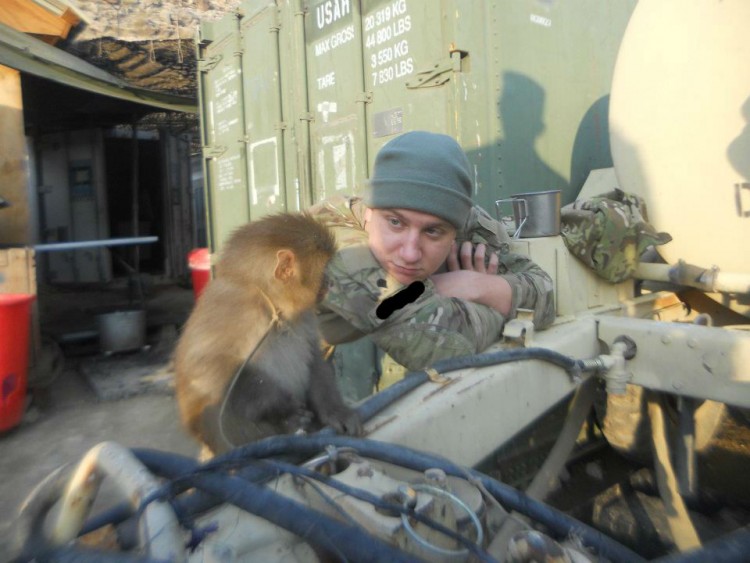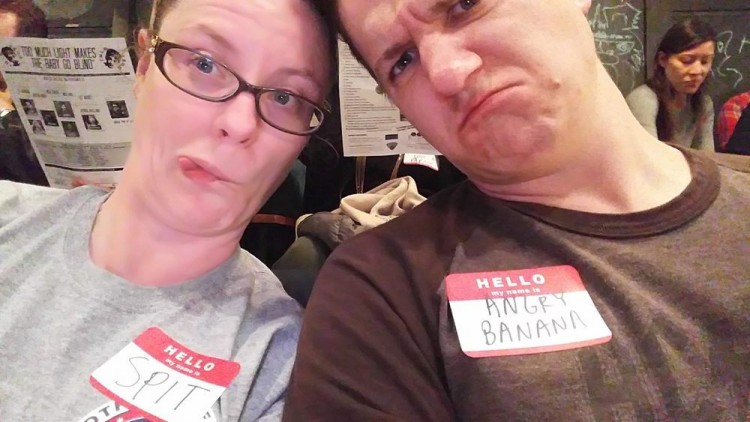During his stint as a soldier, my husband spent a year in Afghanistan’s volatile Kunar province where he faced enemy fire on an almost-daily basis. One morning in May 2010, rockets tore through the sky, explosions echoed off the surrounding mountains and bullets whizzed through the air — the base was under attack. One of the rounds hit a fuel tank and it exploded, wounding several soldiers, including my husband.


He received a Purple Heart for his injuries that day.
The Veterans Association diagnosed him with moderate post-traumatic stress disorder (PTSD) in 2014, and he’s developed a lot of coping skills to keep his symptoms at bay (for example, he prefers sitting against the wall because he gets jumpy when people walk behind him, and he avoids crowds because he sometimes panics when caught in a large group of people). Yet, even with these protective measures in place, he still suffers from symptoms at least once or twice a month, and we recently ran into an unexpected onset of PTSD symptoms when we went to a live-theater performance in Chicago.
We’d had a great time driving to the show and walking together… But as soon we got in line for tickets to the show, my husband’s attitude shifted. He looked upset.
Maybe he’s changed his mind, I thought. “Do you still want to do this?” I asked. “We can find something else to do.”
“I said I wanted to come, didn’t I?”
I bristled at his irritated tone but let it go as we entered the theater. We waited in silence for the show to start. My husband’s agitation intensified as the minutes ticked by.
An actor from the show soon came out and asked everyone to line up for customized name tags. I started toward the back of the line but my husband stopped me. “We’re getting in the front. I’m not getting in the back of that line!”
The people we cut in front of seemed not to care, but I was embarrassed and frustrated with my husband for being so cranky. We have three children, and I couldn’t believe he was acting this way on a rare night out. “What is your problem? Do you want to leave?” I asked, a little more loudly and forcefully than I intended.
“Why do you keep asking me that? I’m fine!”
“Well, you’re acting like a jerk!”
“I don’t like lines. And now we’re in another stupid line for a name tag I don’t even want!”
And then it dawned on me.
My husband wasn’t himself. He was speaking loudly, his speech so pressured that his strong Southern accent was nearly imperceptible. He stood with squared shoulders, a clenched jaw, darting eyes, tense hands and a grimacing face. He was, basically, assuming a defensive position to protect himself from some threat he’d perceived in his environment. The line had triggered his PTSD symptoms.
“Name?” the actress writing names asked.
“Huh?” my husband snapped.
The actress raised her eyebrows and pointed at the tag.
“Oh. Vince.”

Apparently, I wasn’t the only one picking up on his irritated vibe!
“This means nothing,” my husband said to me, smirking, after she handed him a tag that read “ANGRY BANANA,” and I burst out laughing.
That was enough to bring him back from PTSD Town. We relaxed and had a great time for the rest of the evening.
Later, I apologized to my husband. “I didn’t know lines trigger your PTSD,” I said.
“Neither did I, apparently. I thought you were being weird and I had no idea what your problem was!”
Hug. Kiss. End scene.
***
Getting in line instantly triggered husband and his whole demeanor shifted from jovial to insufferable. And though I could clearly see he was acting inappropriately, he could not. Nor did he recognize that he was triggered. In fact, he thought I was acting like a jerk because he didn’t realize I was responding to his negative vibes.
My stepson and stepdaughter endured a lot of early-childhood trauma before my husband obtained full custody of them and they have both been diagnosed with PTSD, along with co-morbid diagnoses of reactive attachment disorder and disinhibited social engagement disorder. They engage in a lot of unusual behavior and don’t respond to traditional parenting methods, so we’re constantly asking them, “What’s wrong?” and we constantly ask them to explain their behavior.
We ask those questions with good intentions — we just want to help them — but my husband’s PTSD episode showed us just how absurd it is for us to expect children with trauma issues to know those answers.
We resolved to quit doing that to them that very night and we’ve also decided to use the insights gained that evening to help us understand them until they can explain their thoughts and motivations. My husband wasn’t trying to be rude the other night, and neither are the kids when they’re having their own mental health issues. Just like my husband, they probably have no idea why we respond negatively to their behavior because they likely don’t even realize they’re triggered and behaving poorly!
Oh, how awful it must be for my kids with trauma issues, to see others around them getting frustrated and angry with them for things they can’t help, for things they don’t even realize they’re doing! It makes my heart hurt, knowing I’ve responded to their distress in such horribly unhelpful ways. I’m their mom. I’m supposed to help them through their troubles, not add to them.
So, how can I do better now that I know better?
I can quit taking their behavior personally because it isn’t about me. It’s about the trauma they went through before I met them.
I can accept their shrugging shoulders when I ask them, “What’s wrong?” and I can quit repeating that question. Because they really might not know what’s wrong!
I can ask them what I can do to help, and I can accept their answer if they tell me I can’t. I can back off if they tell me they don’t want me to help.
I can quit getting angry with their behavior and instead empathize with their struggles, because getting angry at someone suffering from PTSD is completely absurd. Offering love, empathy and patience, however, is anything but.
And I can love them through their negative behaviors.
Even when it’s hard. Even when it’s scary.
I can love them.
Follow this journey on Trauma Mama Drama.

